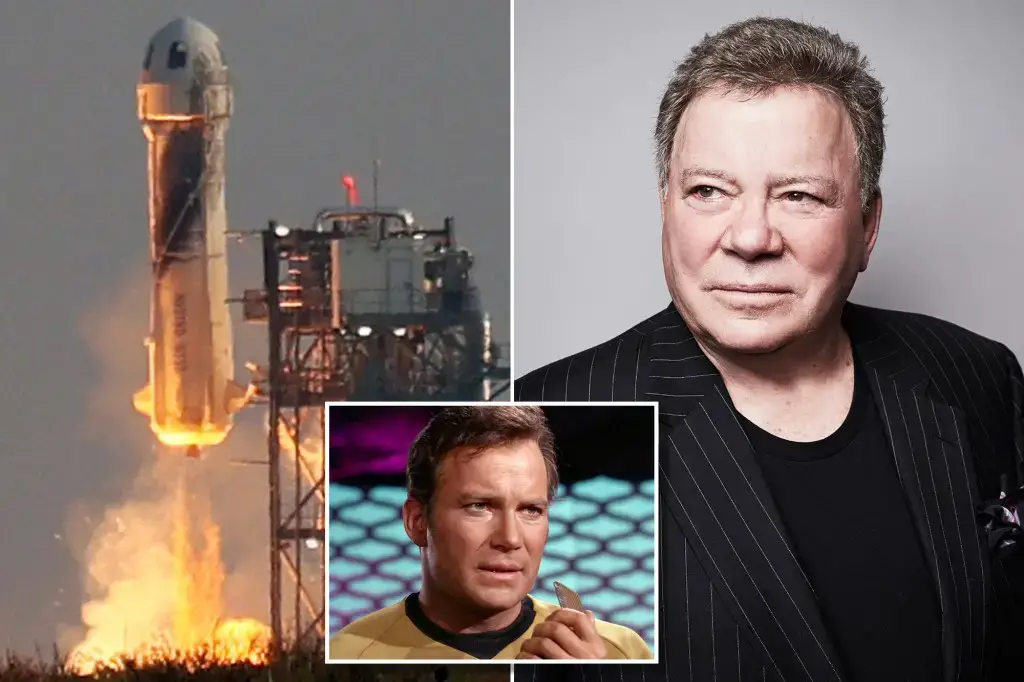The most popular astronaut in the world is most likely William Shatner. He is obviously not an astronaut, however. He’s a performer. Since he portrayed Captain Kirk in the first season of Star Trek, which aired in 1966, the 91-year-old Canadian actor has become a cultural icon.
But William Shatner, a.k.a. Captain Kirk, did go to space last year on a rocket operated by Jeff Bezos’ Blue Origin firm. Shatner’s new book Boldly Go describes his experiences in full.
Shatner admitted to sobbing to NPR. “I had no idea why I was sobbing. I had to go somewhere and sit down to reflect on what was wrong with me. I then recognized that I was grieving.”
Shatner had no idea what to anticipate, but he could not foresee this. He had been eager to fly to space and had contemplated it for about 60 years, but he had not anticipated feeling depressed or experiencing “the deepest sentiments of loss” he had ever had.
The “overview effect” is the term used to describe what Shatner experienced. Frank White, a space philosopher, first used the phrase in his book of the same name in 1987.
When someone views the Earth from space, they experience what White called the “overview effect,” which is a cognitive and emotional change in their awareness, consciousness, and sense of self. They are far away and see the Earth within the backdrop of the cosmos.
Shatner was particularly impressed by this situation.
He said, “It was the death that I saw in space and the life force that I observed coming from the globe — the blue, the beige, and the white. “And I understood that one was life and the other was death.”
Everyone who flies to space, according to White, has an “overview effect” – an emotional or mental response strong enough to upend that person’s preconceived notions about people, the Earth, and/or the universe. Although each person’s overall impact is unique to them, certain responses are more frequent than others.
Shatner’s remark, according to White, is typical of the more than 40 astronauts he has spoken with. When they first see the Earth from space, he remarked, “they often weep.”
Shatner stated, “I sobbed for the Earth because I realized it’s dying. I said in the dedication of my book, Boldly Go, “They, those children, are going to reap what we have sowed in terms of the devastation of the Earth.” The dedication was to my great-grandchild, who is now three and soon to become three.
Returning astronauts often have a stronger aversion to conflict
Astronauts have a better appreciation for how valuable and vulnerable the Earth is after spending time in orbit. Many astronauts claim that while they were aware of climate change and global warming before they went to space, they were considerably more sensitive to the issue.
One astronaut reportedly informed White that “the distinction between academic knowledge and experience knowledge” was the most important thing they had learned from space flight.
Shatner remarked, “I saw the writhing, creeping death of Earth, and we are on it more vividly than I have with all the learning and reading I’ve done.”
“It’s a little rock with an onion-skin atmosphere around it. That is how delicate everything is. It’s very delicate. We are just dangling; we are hanging on a thread.”
Shatner continues, “We’re hanging together even if we’re just dangling.”
He lamented human disputes by saying, “We’re linked with one other.” We are at war, and it is all so obviously dumb.
Like Shatner, many astronauts come back from space with a stronger belief in humanity’s oneness. As a result of their exposure to the reality of our condition, space travelers, in White’s words, return to Earth with “a stronger hatred for war and bloodshed, and a determination to do something for a better life back on the ground.”
And even if the reality may not be nice, a more global viewpoint will only help reunify our previously divided species. According to White, astronauts come back more motivated than ever to contribute to the answer in order for mankind to one day live long and flourish.
Source: NPR.Org

